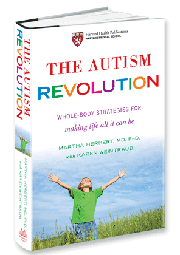What is “physiology”? It is a general term for the biological processes that keep us alive. These processes are in a complex dance with each other, like an incredibly choreographed stage show, where all the dancers are doing their parts in time with the music and matched in space with each other.
This show is not just on a flat stage. It’s 3D, going on in all your cells all the time, and incredibly fast. Every cell in anything that’s alive depends on physiology. If you are a visual learner, click here for a YouTube video animation of what’s going on in your cells. For slower, labeled animations John Kyrk’s website has a good collection.
You can imagine that such a set-up would be vulnerable. Let’s say one of the dancers sprains her leg, or the floor is slippery, or the musicians are out of tune. The show starts to look clumsy. If more of the players have problems the show falls apart.
In molecular terms the dancers (or the stage set – but how do you separate which is which in a cell?) could come from an inborn mutation, a hit from a toxin that damages genes and/or other cellular machinery, radiation, or lack of ingredients to make the structures involved (e.g. insufficient polyunsaturated fat to make optimally workable membranes, shortage of vitamins that catalyze chemical reactions).
Many abnormalities in biological systems have been documented in individuals and groups of people with autism. These include:
- Immune reactivity and inflammation
- Problems with making energy in the cells (mitochondrial dysfunction)
- Oxidative stress
- Overviews of oxidative stress
- Oxidative stress and autism
- Measures of oxidative stress
- Excitotoxicity
- Essential fatty acid abnormalities
- Problems processing or maintaining adequate levels of various nutrients and other body chemicals
- Gut microbiome (“gut bugs”) differences from neurotypicals (or broader search terms on autism and microbiology)
- Vulnerabilties in the stress response system (autonomic nervous system)
How might these contribute to creating the behaviors associated with autism?
- Either by changing the way the brain forms or develops
- Or by changing the way the brain functions in an ongoing fashion even after “early brain development” is largely complete
- Or both.
EVIDENCE THAT PHYSIOLOGY CAN AFFECT BRAIN DEVELOPMENT
The following discussions are not specific to autism, but apply to considerations often raised regarding autism. They address plausibility of taking these factors into account, and of investing more effort and research funding into investigating them.
- Immune system
- Bioenergetics (mitochondria)
- Metabolism
- Gut microbiome
- Endocrine/hormonal
EVIDENCE THAT PHYSIOLOGY CAN AFFECT BRAIN FUNCTION
Again, the following discussions are not specific to autism, but apply to considerations often raised regarding autism. They address plausibility of taking these factors into account for autism, and of investing more effort and research funding into investigating them.
- Immune system
- Bioenergetics (mitochondria)
- Metabolism
- Gut microbiome
- Endocrine/hormonal
ENVIRONMENTALLY VULNERABLE PHYSIOLOGY
The term “environmentally vulnerable physiology” refers to physiological processes that work less well under certain environmental conditions. These conditions include:
- Genetic variants that make the physiological processes less efficient
- Genetic variants that create increased vulnerability to certain toxicants
- Vulnerability of enzymes or steps in the physiological pathways that work less well or are blocked in the presence of toxicants whether or not there is a genetic vulnerability
So much of physiology is related to helping us respond appropriately to the environment. And human beings have lived in a great variety of environments. Thus it is not surprising that there is great variety in how these pathways work, and great variety in environmental vulnerability between people.
A person can be less vulnerable in some parts of their physiology and more vulnerable in others. How sick they get, and what kinds of sicknesses they develop depends on how much environmental stress is put on their pathways, especially their weaker pathways.
Environmentally vulnerable physiology is related to environmental genomics and gene x environment interactions discussed on the Genes page.


